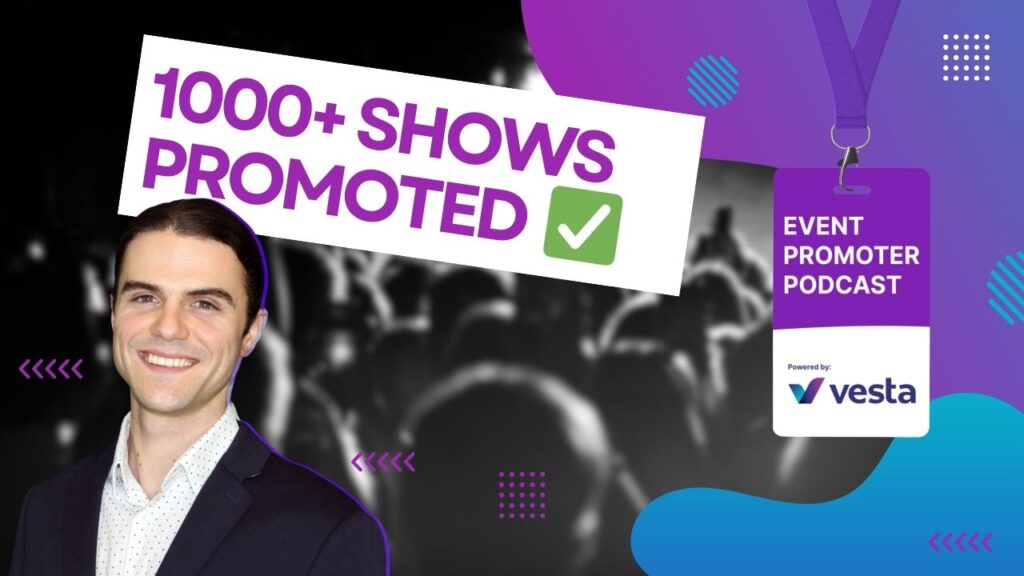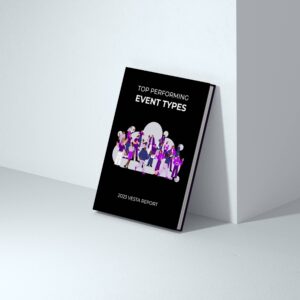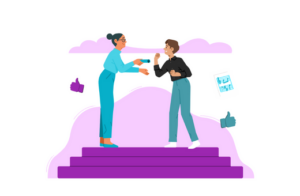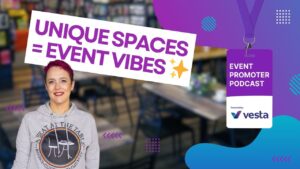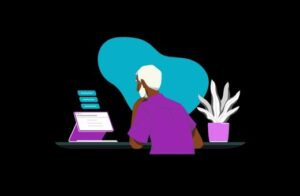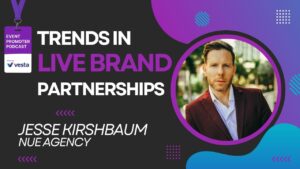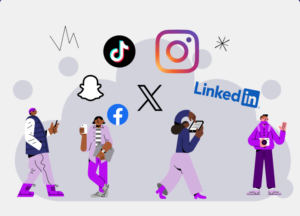Watch on YouTube | Listen on Spotify | Listen on Apple Podcasts
When it comes to event promotion, one of the most critical moments in the marketing cycle is the announce plan. A well-executed announce can make or break your event’s success. As Aaron Owens, Festival and Special Events Marketing Manager at Resound Presents, puts it, “The announce is the time to really get people talking about it and make that statement of what this is.”
With over 1,000 concerts and festivals under his belt, Aaron knows what works and what doesn’t.
In this guide, we’ll break down exactly how to execute an announce plan that maximizes ticket sales and ensures your event gains momentum from day one.
Check out the full podcast with Aaron below or read on for a step-by-step guide for nailing the announce plan for a concert or festival but could be applied to any event.
How to Nail the Announce Plan for Concerts & Festivals | Event Promotion Tips with Aaron Owens [Podcast]
Why the Announce Plan Matters for Event Marketing
There are really three key phases for the marketing of any event. The names may differ depending on the exact industry your events are in, but they amount to:
The Announce -> The Mid -> The Closeout
The announce phase sets the tone for your concert advertising and dictates how the rest of your event promotion strategy will unfold. A strong announce ensures that every key player (venues, promoters, artists, street teams, fans, and media) is aligned and working together for maximum impact.
“If not everyone is aligned or on the same page or has the same understanding of really what the goal is here, that will show up throughout the rest of the campaign,” Aaron explains.
One of the key principles in marketing an event successfully is the concentration of force.
The idea is that your marketing efforts should be focused and synchronized to create the maximum possible impact at a single moment.
As Aaron Owens describes, a well-executed announce should create a sense that “everyone is talking about this” right away.
Events are inherently social experiences, and when potential attendees see the same show being mentioned across multiple touchpoints like social media, email, artist pages, local media, it builds excitement and the fear of missing out (FOMO).
This concentrated push not only drives immediate ticket sales but also sets the stage for sustained organic promotion as attendees start sharing and discussing the event within their own circles driving word-of-mouth.
So, how do you get it right?
Follow this step-by-step guide based on Aaron’s advice to ensure your announce plan is rock solid.
Step 1: Get Your Marketing Assets Ready
Before making your event public, ensure you have all the necessary marketing materials ready to go:
- High-quality promotional images and videos (“Why wouldn’t you just create the best asset you have for announce and push it out that way?” – Aaron Owens)
- Clear, consistent event details (event title, venue, date, time, ticket links)
- Branded graphics and ad copy for social media, email, and digital ads
- Facebook Event page and other listings ready to go live immediately (you can do this automatically after announce with Event Vesta)
- Email marketing materials prepared for newsletters and partners
🔹 Pro Tip: The event website listing should be live before the announce so it can be shared immediately.
Step 2: Get Everyone on the Same Page Before the Announcement
The biggest mistake promoters make is not getting all the key players on the same page before launching their concert promotion efforts.
- Venues: Ensure they have the event listed on their website and social channels. Ideally they should have posters up too.
- Distribute Listings: Use a tool like Event Vesta to distribute your event details to local listing and directory sites.
- Artists & Management: Provide them with all the necessary assets so they can announce on their social media at the same time. Get videos from previous performances and an idea of key upcoming news about the artists.
- Local Media & Partners: Alert press contacts, influencers, and community partners.
- Sponsors & Affiliates: Ensure they are aligned with the campaign timeline.
“Everyone ideally should be posting at that same announce time. They should have similar messaging, but in their own voice,” says Aaron.
A lot of this can be done with simple emails making sure to get everyone the right information and details about when the announce will happen and what is expected of them.
🔹 Pro Tip: If the artist has a large following, request access to run ads from their page for added visibility.
Step 3: Launch the Announcement Across Multiple Channels
The goal of a successful announce is to create the feeling that EVERYONE is talking about this show.
Here’s how to execute an announce campaign for a concert:
1. Social Media Blitz
- Coordinate simultaneous posts from the venue, promoter, and artists.
- Create a Facebook Event and invite relevant co-hosts.
- Share countdown posts, teaser videos, and artist shoutouts.
2. Email Announcement
- Send an announcement email to segmented lists from your previous buyers and fans.
- Have the artists and any partners send a coordinated email to their lists as well.
- Include pre-sale incentives or exclusive early-bird pricing.
3. Press & Media Outreach
- Issue a press release to local and niche media outlets if the event is big enough or unique enough.
- Reach out to bloggers and influencers covering similar events.
- Make sure your listings are up on all local event calendars.
4. Digital Ads & Retargeting
- Run Facebook and Instagram ads targeting local fans.
- Use Google Display Network for ticket purchase retargeting.
🔹 Pro Tip: The best announce plans generate at least 10% of total ticket sales in the first 24 hours. This sets the stage for how well the rest of the sales will go.
Step 4: Partner with Local Businesses for Added Reach
Community partnerships add organic reach to your concert advertising efforts.
Heidi Luerra, Founder of RAW natural born artists, shared in her interview on Event Vesta’s podcast that one of her “secret” tactics for driving up attendance for their multidisciplinary art shows was involving local businesses around the venue.
“I would say involving the actual physical community around… even if you can get like the grocery store across the street or something involved, I think the more community that you involve in your promotion or your production, I think the sweeter it is for a lot of people,” Heidi shared.
Aaron echoed the same strategy and provided some more detailed examples.
“Find a few core partners that are willing to work with you, and want to work with you. Someone who has their own email list, who has customers coming into their shop,” says Aaron.
Some of the local event partnership ideas that Aaron shared:
- Record stores hosting ticket giveaways, such as arranging an in-store signing session where artists meet fans and sign records, while the store promotes the event.
- Bars & cafes offering discounts for ticket holders, like a coffee shop providing free drinks for ticket purchasers or hosting a pre-show meetup with themed drinks.
- Local radio stations running ticket contests and featuring on-air artist interviews to promote the event.
- Lifestyle brands providing influencer support by sponsoring giveaways or featuring the event in their newsletters and social feeds.
- Specialty retail stores, such as skate shops or vintage clothing stores, partnering for pop-up performances or exclusive merch giveaways tied to ticket purchases.
- Food vendors offering meal discounts for concertgoers, creating a bundle deal with local restaurants to enhance the event experience.
We have a whole article dedicated just to finding partners to promote your event.
Step 5: Monitor Performance & Adjust as Needed
Once the announce is live, keep a close eye on engagement and ticket sales:
- Use tracking links for different channels to see what’s working. Not every sale is directly attributable, but this can give you a directional idea about what channels are working.
- Adjust ad budgets based on early sales trends.
- Follow up with partners and media outlets for additional coverage.
If initial sales are sluggish, pivot with:
- Urgency-driven social media posts (e.g., “Limited Early Bird Tickets Left!”)
- Exclusive artist content to re-engage audiences
- Retargeting ads to reach those who showed interest but didn’t purchase
Common Mistakes to Avoid in Concert Promotion
Even the most seasoned promoters sometimes stumble.
Here are some of the biggest mistakes Aaron sees:
❌ Announcing with Incomplete Information
“If the information isn’t clear, if you’re not sure who the support is, if we don’t have good creative, no one told the venue it was going live at this time… that will result in only a few people really talking about the show.”
❌ Failing to Secure Artist & Venue Participation
If an artist doesn’t post about their own show, it creates confusion and weakens momentum. “Touring artists don’t always post about a specific show. You need to get them onboard.”
❌ Spreading the Marketing Budget Too Thin
A weak announce will lead to a sluggish campaign. Instead of pacing out small ad spends, concentrate your resources upfront to create immediate buzz. Just make sure to hold some back for retargeting and taking advantage of new opportunities that might pop up.
Make Your Concert Promotion Count
Executing a flawless announce plan isn’t just about making noise, it’s about creating a coordinated push that builds momentum from day one. By ensuring all key players are aligned, launching across multiple channels, and leveraging local partnerships, you can set your event marketing efforts up for success.
Aaron sums it up best:
“You don’t want to start the race with your pants down. We have to line up at the start and all go at the same time.”
Follow these steps, avoid the pitfalls, and watch your next concert promotion campaign deliver real results!
Final Thoughts
Want to learn more about promoting events? Check out our comprehensive guide to 31 Social Media Post Examples To Promote An Event
You can catch the full episode on our YouTube channel or your favorite podcast platform.
Check out some of our other podcasts and resources for event promoters below.
